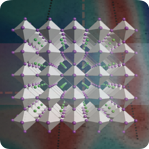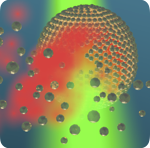Condensed Matter PhysicsCondensed matter physics is a branch of physical science that investigates the physical, electronic and magnetic properties of the various forms of solid and liquid matter. Materials investigated range from naturally occurring crystals to engineered micro- and nanostructures as well as more exotic condensed phases and exciting phenomena such as superconductivity and the quantum Hall effect. The condensed matter physics group at UC Merced has research programs in diverse areas, including
|
|
NanoscienceOur increasing abilities to control, understand and manipulate matter and related interactions are transforming many areas in science and technology. Such advances have been, to a large extent, enabled by the convergence of techniques and perspectives from a broad range of disciplines. The research interests at UC Merced in the field of nanoscale science and technology include
|
|



